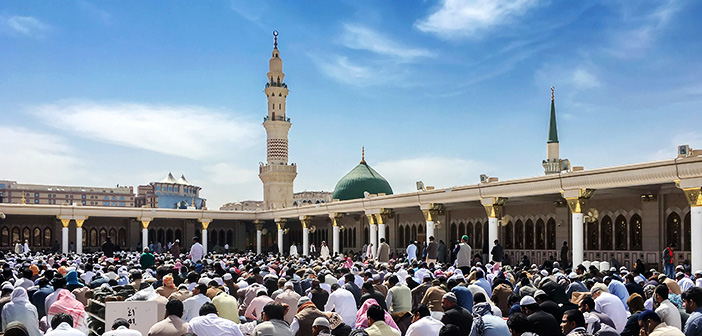Fiqh, which was born with the revelation of the Qur’an and whose foundation was formed in Medina, continued to develop and to take shape during the time of the Prophet (pbuh).
Remarkable Characteristics of the period of the Prophet (pbuh) in terms of fiqh are as follows:
1- Rulings were determined by divine revelation: Legal problems were solved by the revelation. The verses related to legal matters were generally revealed after the occurrence of an incident. Hence, in several verses of the Qur’an revealed to the Prophet (pbuh) there are expressions like ‘‘And they ask you .. :’ or “they ask for a fatwa from you.:’ etc.
Regarding the circumstances for which there was not any verse, the Prophet himself issued a ruling. This created the second source of religion, i.e. the Sunnah of the Prophet (pbuh).
2- Rulings were gradually revealed (tadrijan): Islamic rulings were gradually revealed. For example, alcohol was prohibited in three stages. By means of this feature, religion was learned and adopted by people more easily. Consequently, the bad habits rooted in society gradually disappeared. For example consumption of intoxicating beverages were prohibited in three stages (by the verses of al-Baqara 2: 19, al-Nisa 4: 43 and al-Maida 5: 90-91).
3- Naskh (abrogation) took place in this period: Naskh means the abrogation of a religious ruling by another shar’i ruling that was revealed later. The verses of the Qur’an have abrogated the Shari’as of previous religions. In the early periods of Islam, believers used to turn towards Masjid al-Aqsa in Jerusalem during their prayers, the direction of prayer was changed by the 149th and 150th verses of surah al-Baqara. The 180th verse of surah al-Baqara about bequests was abrogated by the 11th verse of surah al-Nisa and the Prophet’s saying, “there is no bequest for the heirs.”[1] Allah’s Messenger (pbuh) had initially banned visiting graves, but after the remnants of pre-Islamic customs were erased from society, he (pbuh) again permitted the visiting of graves.
4– Decisions were made with consultation (shura): In matters about which there was no revelation, the Prophet (pbuh) sometimes issued judgments by consulting his Companions before making a decision, and at other times, he relied on his own experience and knowledge. When his decision was not deemed accurate by God, it was corrected by a revelation.
5- There was no disagreement (ikhtilaf): Since nobody has ever objected to any of the Prophet’s decisions, there was no disagreement about the legal matters in this period.
[1] Al-Bukhari, Wasaya, 6; Abu Dawud, Wasaya, 6
Source: Fiqh1 (According To The Shafi’i School Of Islamic Law), Erkam Publications
SIMILAR ARTICLES
- WHAT IS ISLAM?
- THE FAMİLY TREE OF PROPHET MUHAMMAD SAW
- THE ESSENTIALS OF ISLAMIC FAITH
- FREE İSLAMİC BOOKS READ AND DOWNLOAD PDF
- MORALITY IN ISLAM





